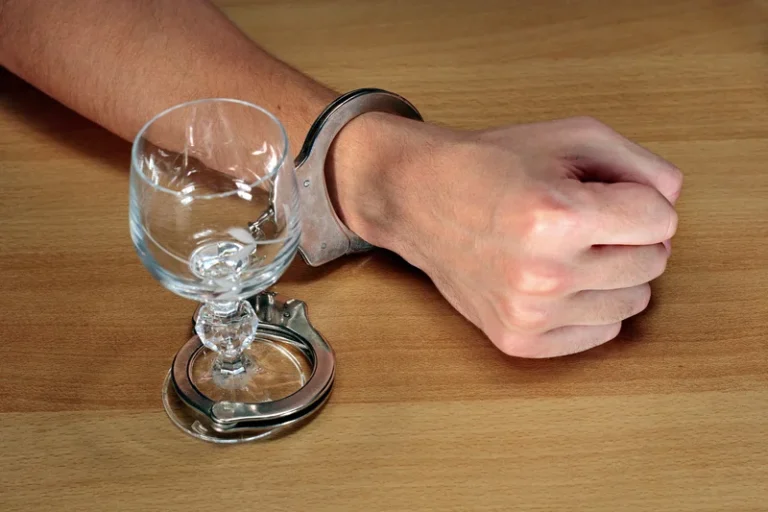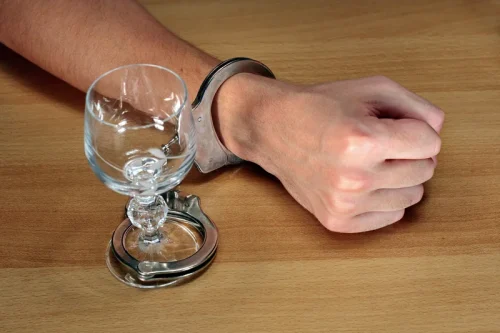
Biting or the tongue or the inside of the cheek can cause blood-tinged saliva. Diagnosing alcohol-related seizures (ARS) is a complex process that involves distinguishing these seizures from other types and identifying their link https://ecosoberhouse.com/ with alcohol use or withdrawal. Use of this website and any information contained herein is governed by the Healthgrades User Agreement.
Key Takeaways: Alcohol Use Disorder

Recognizing these symptoms is vital, as alcohol seizures can lead to further complications and require immediate medical intervention. Treatment may involve medications such as benzodiazepines to manage withdrawal symptoms and prevent future seizures. Serious concerns about alcohol withdrawal and seizures may arise when people with severe drinking histories suddenly stop or reduce alcohol intake. It is important to know the link between them for early symptoms’ identification and quick access to medical help.

Alcohol misuse and epilepsy

Additionally, alcohol and antiepileptic drugs cause many of the same side effects, and the combination can make these side effects worse. Binge drinking is defined as a pattern of alcohol intake that causes the blood alcohol concentration (BAC) to be 0.08% (0.08 g/dL) or higher. This typically occurs if women have 4 or more drinks and men have 5 or more drinks within about a 2-hour period. The Recovery Village Cherry Hill at Cooper offers comprehensive addiction treatment for drug and alcohol addictions and co-occurring mental health conditions. If you’re seeking addiction treatment for yourself or a loved seizure due to alcohol withdrawal one, The Recovery Village Cherry Hill at Cooper is here to help.
General Health
- We divided studies based on intervention and summarized evidence narratively.
- If you or a loved one are ready to begin the journey toward a substance-free life, we’re standing by to take your call.
- Contact your doctor if you or someone you know is experiencing alcohol dependency or withdrawal symptoms.
While withdrawal seizures are often a standalone symptom, they can escalate to more severe complications like delirium tremens (DTs) if left untreated. Alcohol withdrawal seizures are convulsions that occur as a result of the brain’s reaction to the absence of alcohol. Chronic alcohol consumption alters the balance of neurotransmitters in the brain, suppressing its excitatory functions while enhancing inhibitory mechanisms. When alcohol is abruptly removed, the brain becomes hyperactive due to the sudden loss of the inhibitory effects of alcohol, leading to seizures. The amount of alcohol intake before alcohol-related seizures was at least 7 standard drinks, or the equivalent of 1.4 liters of beer or 700 milliliters of wine. In almost all cases, seizures occurred within 12 hours of stopping alcohol consumption.
- Yet, treatment strategies and doses vary from center to center and consensus is lacking (46).
- Alcohol withdrawals lead to convulsions because alcohol affects the brain.
- Alcohol’s half-life is around four to five hours, which means your body will process the chemical out of your bloodstream within that time frame.
• Alcohol withdrawal seizures occur 6 to 48 hours after alcohol cessation. Therapeutic approaches provide strategies to cope with cravings, develop healthier habits, and tackle underlying issues contributing to heavy alcohol use. Evidence-based treatments like cognitive-behavioral therapy (CBT) help modify thinking and behavior related to alcohol use. For those with epilepsy, alcohol can trigger seizures, especially during withdrawal. The interaction between alcohol and antiseizure medications can exacerbate the situation, highlighting the need for caution among those with epilepsy. The pathophysiology of alcohol seizures involves the central nervous system (CNS) and is related to the abrupt reduction in alcohol intake after prolonged heavy consumption.
- Ultimately, regular medical check-ups serve as a preventive strategy for maintaining quality of life and prolonging independence, particularly for those navigating the challenges of alcohol recovery.
- (4) Chronic ethanol intake increases the number of L-type calcium channels in different brain regions.
- Although without a true withdrawal syndrome, complications of abstinence from stimulants include anxiety, anhedonia, and depression.
- However, our review of evidence from interventional studies performed in the ED does not provide sufficient evidence to recommend routine use of phenobarbital or propofol in ED treatment algorithms.
- Heavy drinkers suddenly decreasing their alcohol consumption or abstaining completely may experience alcohol withdrawal (AW).
- It’s important to always talk with your doctor about whether it’s safe to consume alcohol with your medication.
- The wife clarified that that he was a heavy drinker and that during the weekend the patient had been drinking continuously for 3 days.
- Fortunately, treatment options and medications are used in alcohol withdrawal management.
- The medications acamprosate, disulfiram, or naltrexone may also be used to help prevent further drinking.
- Research shows that about 5% of those who experience alcohol withdrawal experience seizures, and more than 90% of those seizures occur within the first 48 hours after stopping drinking.
- A total of 3.3 million deaths (5.9% of all deaths) are believed to be due to alcohol.
Alcohol intoxication is the negative health effects due to the recent drinking of ethanol (alcohol). Some effects of alcohol intoxication, such as euphoria Drug rehabilitation and lowered social inhibition, are central to alcohol’s desirability. Case-control studies convincingly demonstrate the association of first seizures to alcohol use in a dose-dependent manner. For example, the risk was 3-fold for people drinking 51 to 100 g alcohol/day and steadily increased to 8-fold and more than 16-fold for people drinking 101 to 200 g/day and more than 200 g/day (47; 36).
Symptoms of Alcohol Seizures
Cassidy et al., reported that symptom-triggered approach reduced cumulative benzodiazepine dose and length of stay in an emergency department set up 54. Similarly, other studies have also shown that STR reduces the benzodiazepine doses and duration of detoxification. Studies have been conducted on oxazepam 47, chlordiazepoxide 46 and chlormethiazole 55. Over the years, the treatment for alcohol detoxification has evolved from the use of gradual weaning schedule of alcohol itself to the use of benzodiazepines and the newer miscellaneous drugs. Prompt pharmacological treatment is indicated in all cases of AWS, as non-treatment or under treatment can be fatal 25,26.

Is Alcohol Dependence the Same as Alcoholism?
Patients with severe alcohol withdrawal symptoms and all those with seizures during previous alcohol withdrawal episodes have higher risk for alcohol withdrawal seizures and may benefit from seizure preventive treatment (20). When pharmacological treatment is necessary, benzodiazepines should be chosen for the primary prevention of seizures in a person with alcohol withdrawal. Developing a tolerance for alcohol has a direct impact on the central nervous system. For abusers, the cessation of drinking can significantly increase the seizure threshold.


Leave a reply